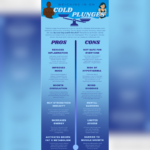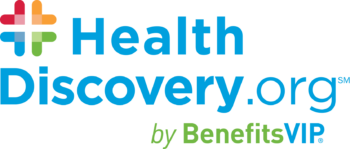It’s not just about distancing and wearing a mask. Medical Director Dr. Vincent Apicella gives us 5 ways to avoid COVID-19 complications.
The SARS-CoV-2 coronavirus is a viral infection that can turn into an inflammatory killer, and even initiate an autoimmune response or microembolism (small blood clot) that can cause organ damage. As we know, the resulting inflammatory chronic disease is COVID-19.
Our employees heard Dr. Vincent Apicella, DO, Medical Director at Premier Family Health in Wellington, FL, outline 5 ways to self-care and strengthen your immune system to help avoid COVID-19 complications, before and if it’s contracted.*
- NOURISH YOUR CELLS
Keeping inflammation down is key so if you do contract COVID-19 your threshold for an inflammatory response is already lower. Decreasing caloric intake will initiate fat burning processes in your body, thus lowering the inflammatory threshold…. You may even drop those unwanted pounds.
Fat cells store toxins which is why the 75% of Americans who are overweight (BMI >25) or obese (BMI >30) are at a higher risk for COVID-19 complications. The critical step of decreasing calories will prove beneficial overall, in addition to having anti-viral value.
You can do this by simply cutting back or the more committed approach of intermittent fasting1. Start by tracking your current calories as a baseline (Dr. Apicella recommends MyFitnessPal, among others). Then you’ll have a figure to improve upon by eating smaller portion sizes, preparing more thoughtful meals and making healthier food choices.
85% of Americans consume too many calories.
Secondly, it is also important to consume cruciferous2 vegetables every day and increase servings of fish3, while decreasing animal-based products (red meats, eggs and dairy) to 2-3x/week. Studies of the Mediterranean Diet has been shown effective in this regard.
A third way to nourish your cells is to increase your intake of [filtered] water. The Mayo Clinic4 recommends approx. 64 ounces/day, though that can fluctuate depending on your activity level and types of food you eat.
DR. APICELLA’S PREFERRED NUTRACEUTICALS:
Metagenics
XYMOGEN**
DaVinci Laboratories
Ortho Molecular**
- SUPPLEMENT YOUR NUTRITION
Recommended daily supplements (dosage can be doubled if tested positive for COVID-19):- Vitamin D3:
2000-10,000 iu/day to maintain vitamin D levels between 50 and 80. It’s very important to know this number, just as you’d want to know your cholesterol or your blood type. Lower levels are appropriate for kids, too. - Vitamin C:
3000-4000 mg/day, half in the morning and half at night to avoid GI upset. May decrease if getting enough through diet. 2000 mg/day is appropriate for kids, split am/pm. - Zinc Glycinate:
20-40 mg/day for best absorption (95%). 10-20 mg/day is safe for kids. - Omega-3 Fish Oil (anti-inflammatory & blood thinner):
1500-2000 mg/day with only a DHA/EPA combo from small, cold water fish: anchovies, sardines, mackerel. If it contains “other” ingredients it may not be a high-quality supplement.
- Vitamin D3:
Additional supplements if diagnosed COVID-19 positive:
-
- N-Acetylcysteine (“NAC”; a great antioxidant):
600-1200 mg/day - Curcumin (potent anti-inflammatory & blood thinner):
200-400 mg/day, preferably containing 95% curcumanoids or ingredient: ECM 95. Preferred over turmeric for better absorption. - ESPECIALLY IF HIGH RISK: Baby aspirin (blood thinner):
81mg/day
- N-Acetylcysteine (“NAC”; a great antioxidant):
- EXERCISE YOUR HEART
Daily exercise can improve immune response by 6x but do what feels right. If you’ve been a couch potato this year, begin with mild to moderate movements daily. Too aggressive, too fast could actually suppress your immune system by 2x, so work your way up to that marathon. Try these 5 easy home exercises to get started.
- SLEEP WELL
Ensure 6-8 hours/night (at least 4 hours uninterrupted) in a very, very dark room to program your brain for slumber. Bedtime reading/TV watching should be done elsewhere. Millions of Americans use melatonin as a sleep aid, but high doses of melatonin can interrupt sleep cycles with vivid dreams; take cautiously. If you have trouble sleeping, your doctor may order a sleep study. Get the 411 here.
Get free relaxation/meditation music at liquidmindmusic.com.
- MANAGE STRESS
Long-term stress can weaken your immune system,5 and it can take many forms. Strive to focus on the present by fulfilling your needs in the moment. Exercise is a great stress reliever for many and takes care of two of Dr. Apicella’s self-care tips in one! Here are 5 ways to add cathartic expressions to your life in an effort to find peace within yourself.
Always talk to your healthcare provider before making any changes to your diet, exercise regimen, vitamin/supplement intake, etc. These suggestions may not be right for everyone, and you should consult your doctor regarding your appropriate doses and any potential interactions.
Of course, following the CDC’s guidelines can also help slow the spread of COVID-19 and protect yourself. Wear a mask (covering your mouth AND nose), stay at least 6 feet apart and avoid high-risk settings and situations.
Our health has become a highlight over the past year, and there’s no better time to start planning for a healthier lifestyle. Stay well, America!
* Always talk to your healthcare provider before making any changes to your diet, exercise regimen, vitamin/supplement intake, etc.
** Only sold through licensed healthcare professionals.
1Harvard Medical School, “Intermittent Fasting: Surprising Update”
2eatright.org, “The Beginner’s Guide to Cruciferous Vegetables”
3The Washington Post, “Why Eating Fish is so Good for your Health”
4The Mayo Clinic, “Water: How Much Should you Drink Every Day?”
5Penn Medicine, “6 Signs you have a Weakened Immune System”
MORE RESOURCES
“Take Charge of your Wellbeing in 2021 with a Personal Wellness Plan”
“Comparison: Which Is the Best Face Mask for You?”
“My COVID-19 Safety Kit: 5 Tools to Have at All Times”















